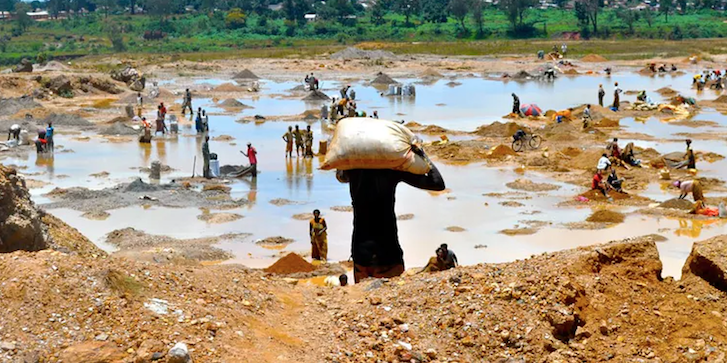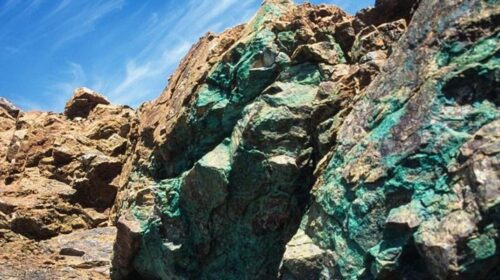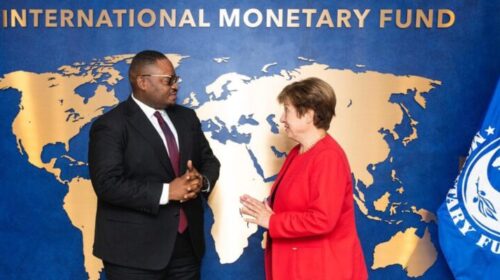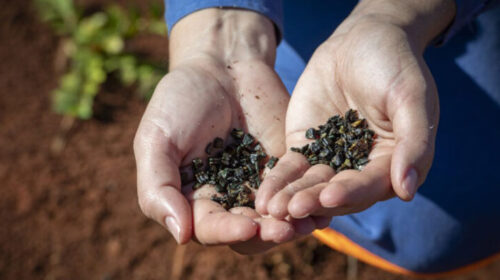DRC cobalt standard to empower artisanal, small-scale miners – Trafigura
The Democratic Republic of Congo’s (DRC’s) newly established mining company – Entreprise Générale du Cobalt (EGC) – will ensure the country’s artisanal and small-scale mining (ASM) sector benefits from the energy transition through the establishment of legal and ethical channels for off-taking of the cobalt produced in the country, commodity trading company Trafigura corporate responsibility head James Nicholson said on April 26.
Speaking during a webinar hosted by the Organisation for Economic Cooperation and Development on the topic of responsible mineral supply chains, he explained that ASM cobalt mining in the DRC was undergoing “fundamental reform”.
The DRC government created EGC in November 2019 with the intention to hold the monopoly for the buying, processing and sale of all cobalt produced by artisanal miners or companies involved in ASM in the DRC.
A central component of fulfilling EGC’s mission is ensuring that artisanal and small-scale cobalt production is undertaken in accordance with the EGC Responsible Sourcing Standard, which was launched on March 31 this year.
The EGC standard is designed to ensure decent working conditions and eliminate the key social, ethical and environmental risks that have historically plagued artisanal cobalt production.
Nicholson said that, of late, increasingly ambitious goals for emissions reductions were being considered and that as the energy transition gains pace, industry stakeholders needed to keep an eye on any unintended social consequences, especially in the case of cobalt – a commodity with a chequered past.
As such, the electrification of transport has become a priority for governments around the world, he said, adding that the impact on the copper and cobalt market has been profound.
However, Nicholson noted that ASM was a clear example where huge numbers of people could lose out on the opportunities created by the energy transition if they continued to be marginalised. “Too often we have heard over recent years of efforts to move ASM out of concessions and out of the value chain as a whole and at best these are being counter-productive.”
In this regard, he said the proper response to ASM was not to hide from it or seek to exclude it, but to manage it, responsibly. “When Trafigura first took this policy position some years ago, it was little understood. However, since that point the position of others, our competitors and other miners for example, have softened immeasurably.”
Trafigura expects total cobalt demand to double from 145 000 t this year, to 290 000 t in 2030; with electric vehicles accounting for about 75% of that demand.
As such, Nicholson said the importance of DRC cobalt production would only grow, with cobalt mined in the DRC accounting for as much as 70% of all exports of the commodity by 2025.
However, he reiterated that, if the rights of those engaged with ASM were to be maintained, and if the DRC was to truly capitalise on this “incredible opportunity”, then standards for sourcing responsibly from this context were “all the more important”.
UPHOLDING OF STANDARD
Trafigura entered into a relationship with EGC in 2020, of which an important part comprised support by Trafigura, development organisation Pact and sustainability consultancy Kumi, for the development of controls and traceability measures.
“All partners are absolutely aligned in the belief that supporting the DRC State in formalising ASM cobalt represents a game-changing opportunity for the country and wider cobalt industry as a whole,” stated Nicholson.
He explained that the standard applied to all ASM sites, cooperatives, EGC itself and buyers such as Trafigura.
Through adopting and complying with the standard, EGC and Pact staff will be present on each and every production site, every day to monitor compliance and make suggestions for refining the process.
“All [cobalt] production will be bagged and tagged with tamper-proof seals. Payments will be electronic. Data will be uploaded to a blockchain solution,” said Nicholson.
As such, he said EGC cobalt would be traceable from the mine through to the international market and that Kumi would conduct assessments every single quarter on the ground, not remotely or through the blockchain, but by being present at mine sites and understanding how the standard was being applied.
However, Nicholson said there would be weaknesses and opportunities for improvement and that, through full and summary assessments, refinements could be made. The full assessments would be reserved for the technical committee, while the summary assessments would be made available for downstream customers who would also be able to access data through the blockchain.
“Our purchases from EGC will be made against the EGC Standard. The Standard is the only relevant commercial standard of its type. Risks in this context are constantly evolving, and the standard will evolve and gradually improve,” he said.
![]()





